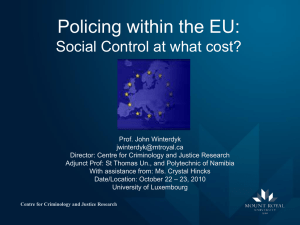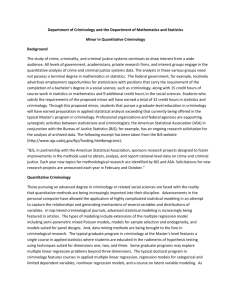Criminology as Vocation and Profession
advertisement
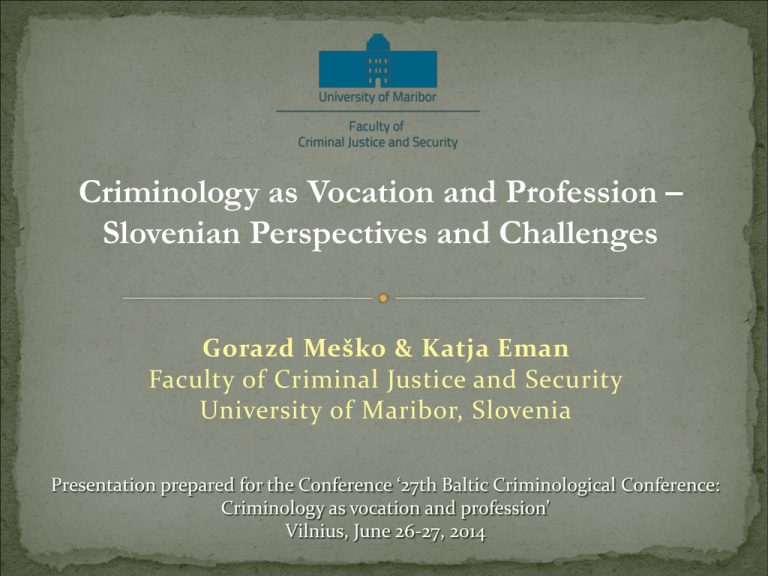
Criminology as Vocation and Profession – Slovenian Perspectives and Challenges Gorazd Meško & Katja Eman Faculty of Criminal Justice and Security University of Maribor, Slovenia Presentation prepared for the Conference ‘27th Baltic Criminological Conference: Criminology as vocation and profession’ Vilnius, June 26-27, 2014 As criminality changes through time, so does criminology (Kangaspunta and Marshall, 2009): 1) criminology’s explicit interest is the normative behavior (considering norms and rules); 2) criminology gives the central role to inequality, power and politics in the process of criminalization (criminality is based on politics); 3) in the last period criminology has developed a great interest for victimization, especially to the different kind of threats, which origins from the social and economic inequality; 4) from surveys of criminality and deviance expert’s reports about researching the socially harmful behavior developed (for example street criminality, victimization surveys etc.); 5) criminology took over the politics that is based on evidence and focused into preventing and control of the illegal behavior; 6) criminology is very quickly becoming more and more international and globalized; and 7) the fields of justice and human rights have become the main topic of research and writing of numerous criminologists. Politicisation of crime control (crime control as a political discourse, crime and order have become big issues in political campaigns) Rise of ‘populist punitiveness’ (public opinion led policies, media pressures, folk devils & demonisation of dangerous people) Impact of risk mentalities and managerialism (risk management, managerial solutions most welcome) Neo-liberalism (competition, consumer society, crime beyond frontiers, cyber crimes…) Modernization of the civil service (especially equipment, training – more slowly) Politicization of the civil service (and support of NGOs) Attempts of ‘evidence-based policy-making’ Programmes reduction – economic crisis ESC Constitution – Section 1: The term criminology, as used in this Constitution, refers to all scholarly, scientific and professional knowledge concerning the explanation, prevention, control and treatment of crime and delinquency, offenders and victims, including the measurement and detection of crime, legislation and the practice of criminal law, and law enforcement, judicial, and correctional systems. Where does Criminology belong as a teaching discipline? ISCED (International Standard Classification of Education I S C E D, 1997, UNESCO) – Security (86) (Protection of property and persons: police work and related law enforcement, criminology, fire-protection and fire fighting, civil security; military). Scientific discipline: SLO scientific classification - KLASIUS (criminology and social work) – implication – criminology should contribute to solving social problems. Vocation Profession Ph.D. M.A. B.A. - Security and Policing - Information Security - Criminal Justice and Security Vocational programmes High school Research and academic institutions or (non-)governmental organisations (experts who possess theoretical and empirical knowledge + leading positions) Practical skills + demanding tasks of analysing, planning, developing, and leading security processes in the public and private spheres of the economy or in non-government organisations. (leading positions and broader understanding of crime analytics) Practical skills and basics of crime analysis (problem solving approach). Practical skills Bologna convention Educational discipline(s) Scientific discipline(s) National, continental and global understanding of disciplines Requirements Cooperation, flow of ideas, comparability, applicability, topicality, research based, employability of graduates, impact factor… Reach for the sky… (high research goals) more teaching and research workload, less time, new managerialism – academia as production – “academic production” counts only – competition... Huge challenges even for the developed western countries... Economic crisis Importance of close cooperation with practice – search and compliance with the needs of practice SLO - Criminologist - a professional in a list of professions coincidentally added on the list of professions at the same time as a prostitute… - A Criminologist - a professional? - What does a criminologist do? Different descriptions of their competencies and job opportunities. - How many criminologists do we need? Teaching criminology as a generalist – a little bit of everything – little research Teaching criminology as a specialist – high level of specialised knowledge – little teaching Need for both – generalists and specialists How to write a textbook on criminology – ‘phone directories’, selection of research articles, general textbooks, original theories.... Study material must be of high quality – Slovenian language - a small community Sutherland (1960) Criminology includes the scientific study of making laws, breaking laws, and reacting toward the breaking of laws. Pečar (1998), former director of IC-LJ Criminology is a discipline for a better understanding of crime and its curbing. When cynical: “A marginal science on marginal problems.” Kanduč (2000), Slovenian radical criminologist Criminology is a discourse in which everything is questionable, including what criminology is or what it is supposed to be. A multidisciplinary hybrid developed from police studies and public administration Criminal justice studies (USA, GB, AUS, Canada) and Criminology Security/safety studies (Europe) Tradition – Slovenia – Internal affairs – public safety/security, crime prevention, crime control… criminology & and other social control disciplines (Pečar-formal, informal and institutionalised informal social control) + foreign templates (borrowed from the West) To become a centre of excellence in CE Europe – Criminology, CJ and Security/Safety Studies (teaching and research) – joint degrees, joint research projects, exchange of professors, students; overcoming a national perspective – broadening perspectives… To teach BA, MA and PhD levels and train (lifelong learning) future experts and lay people in the field of crime control, crime prevention, safety/security matters (alumni - informal networking). To further increase the quality of the existing programmes while preparing new undergraduate and postgraduate curricula to respond to the new security/safety issues To further develop the information security study programme embracing the state-of-the-art knowledge available within the social and natural sciences. High quality of research – overcoming a method fetishism (falling in love just with one research method for the entire career) Diverse social problems require diverse research methods Publications in English/other foreign languages (going beyond the idea of “Five writers for six readers” ...in a small village Joining international research teams – learning from each other, improvement in quality of research (not an easy task to do) Development of new theories – ‘contextualised’ theory – late-modern, post-modern criminology in the Western Balkans… (20 minutes out of the city = going back 30 or more years...) Contribution to the development of criminology in general (impact factor… contribution to a global knowledge) + national impact – transfer of knowledge, community service… Being a prophet in your own house… gorazd.mesko@fvv.uni-mb.si katja.eman@fvv.uni-mb.si
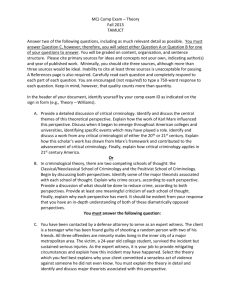
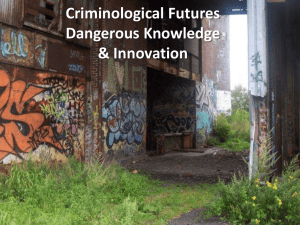
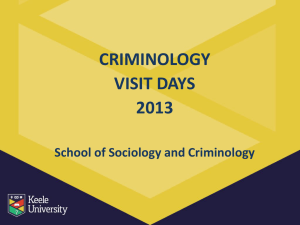
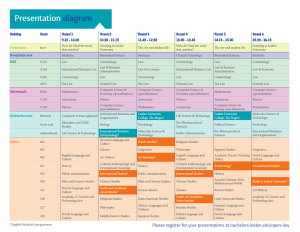
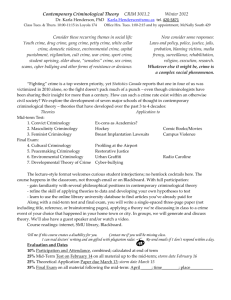
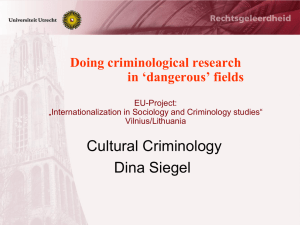
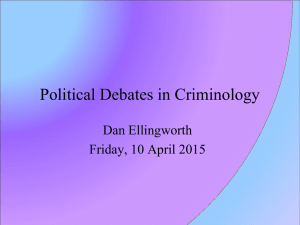
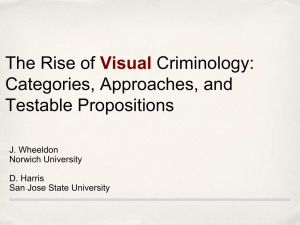
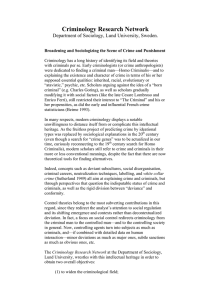
![Presentation Slides []](http://s2.studylib.net/store/data/005387931_1-4b98dc4a4b8bca7e6df3d94746f9f091-300x300.png)
